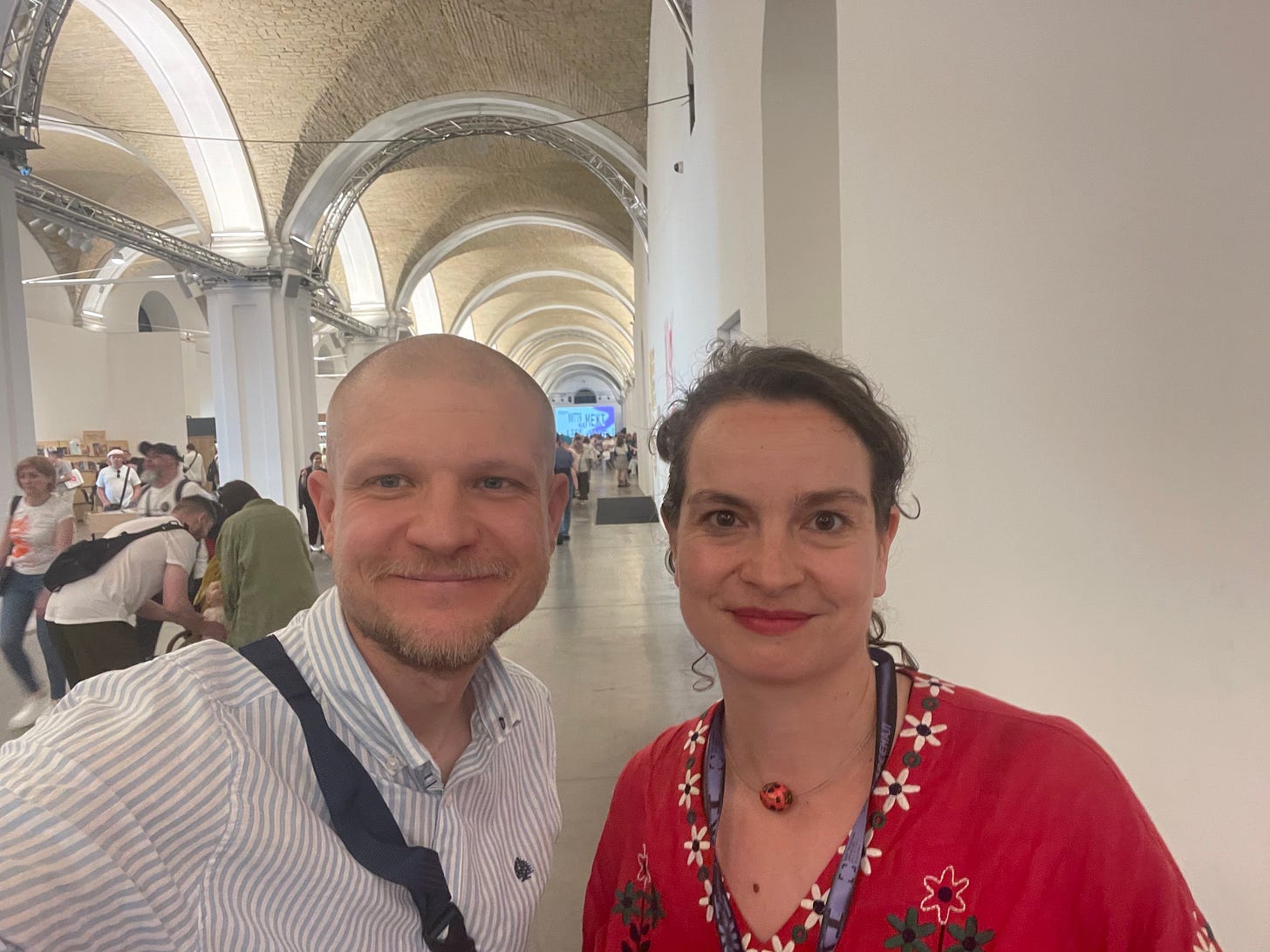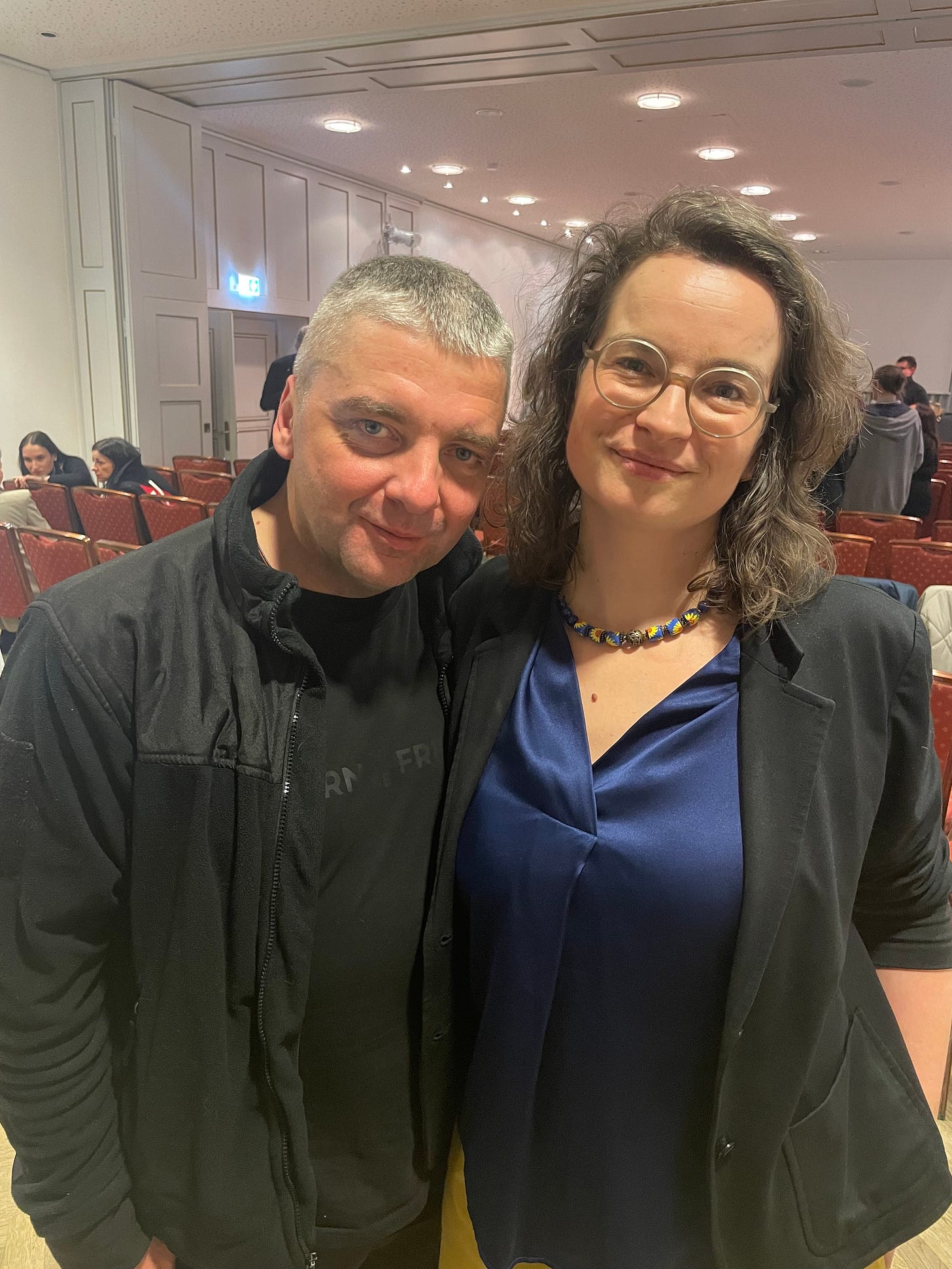When I decided on the topic of my PhD (on Muslims in the Russian imperial army in the late 19th and early 20th centuries), I felt a bit more comfortable with this period for somewhat egoistic reasons. Everyone you are writing about is dead, and people tend not to get that worked up about the nineteenth century (or so I thought). Fellow PhD students were writing about the Second World War and the discourse on the expulsion of the German population from Eastern Central Europe in 1945. You were in the middle of unpleasant conversations when you wrote about stuff like that. I’ll stick to the nineteenth century, I thought. Way less trouble! You can do your research in peace and quiet without being pestered by people about what you are doing. Now I have a whole collection of aggressive emails and social media posts accusing me of being a Russophobe, a warmonger, a propagandist for Ukraine, an enemy of free speech, a failed academic, a crazy activist, an aggressive woman whose partner is to be pitied. So, my initial „peace and quiet“ approach to academia has not worked out.
In 2014, Russia attacked Ukraine. However, this blatant violation of international law and aggression toward a sovereign country was framed as the „Ukraine crisis“ in Germany, and one of the excuses for the blatant Russian aggression was that Crimea „had always been Russian“. Having worked on the history of the Crimean Tatars for my PhD, I knew this was false. I must admit that it was only during the Revolution of Dignity in 2013/14 and the subsequent Russian attack that I truly understood just how colonial the German gaze towards Eastern and Eastern Central Europe was and how much it was fixated towards Russia. However, I must also admit that I still did not understand the depth of the problem of Russo-centrism in my discipline and how it also influenced my studies; that only happened after the full-scale invasion. Looking back, it was in 2014 that I understood that it is not a desirable position for a historian to be beyond politics. What is the point of our profession if we do not take a stance in the present based on our knowledge and expertise and our commitment to human dignity?
The Ukrainian Revolution of Dignity fascinated me. There were people my age or younger who fought for things and were prepared to die for things that I was just given by chance of the time and place of my birth. I became interested in modern Ukrainian history; I started to learn Ukrainian, took students to Ukraine and began to write (negative) reviews of pro-Russian books in German newspapers and criticised the way the revolution on Maidan had been presented in German public discourse. After having published one such text, a colleague in Munich who was Ukrainian approached me, and we became friends. We travelled together in Ukraine. I also realised how typically German my path towards Eastern Europe had been. As a teenager, I became a fan of Russian classical literature—I cannot stand Dostoevsky today. I had dreamt about going to St. Petersburg as an exchange student before I started university, and Ukraine was, at that point, a blind spot. The Orange Revolution in 2004, which occurred at the beginning of my university studies, was the first political and social event that put the country on my mental map.
Only when I went to St. Petersburg did I realise that the romantic notions of Russian so popular in Germany had little to do with reality. I was also lucky that I happened to study at a university in Germany where not only Russian history was taught but also Polish and Czech history. Then, only very few courses were dedicated to Ukraine, but my knowledge of Polish and Czech history helped me to understand the Ukrainian revolution of 2013/14. I got, to quote Milan Kundera, the tragedy of Central Europe. As Polish, Hungarian and Czech intellectuals protested against the Russian colonial domination of their countries in the 1980s and insisted on their belonging to Europe, Ukrainians did the same in 2013/14.
I felt very honoured (and, quietly, a bit out of my depth) when I was invited to participate in a panel discussion with three distinguished Ukrainian speakers in 2018 in Munich during the Docudays UA International Human Rights Documentary Film Festival: philosopher Volodymyr Yermolenko, writer Oleksandr Mykhed and human rights activist and journalist Maksym Butkevych. Thinking of my performance now, I was out of my depth. But Volodymyr, Oleksandr and Maksym were kind. We spent the evening together with other people from the festival. My husband would later say (when we learnt that the Russians had captured Maksym) that it was one of those evenings where the aura of one person (Maksym’s) was palpable in the room. Not because he dominated our conversation (he didn’t) but through his kindness, humour, humanity, and warmth. Oleksandr gave me a copy of his book, which had just come out. I remember thinking: wow, who is this guy? He is younger than me and has already written a book about a revolution in which he participated.
After the full-scale invasion, I wrote to Volodymyr via Twitter: where are Oleksandr and Maksym? They have joined the army, he replied. I had only spent one evening in the company of these men, but my heart sank. They had joined the army. They could die defending Ukraine. A few months later, Maksym was captured. The things I had read and written about as a historian felt so close. After our panel discussion in Munich in 2018, Maksym turned to me and said, „Wow, that was great! Not one question about Ukrainian Nazis!“ What does it say about the German perception of Ukraine that a veteran human rights activist would constantly be asked about Nazis— just after the biggest pro-European civil uprising in Ukraine in history? What does it say about us, about Germany, that Maksym, Oleksandr, Volodymyr, and people like them were rarely interviewed in the German media in 2013/14 and beyond? After all, their generation stands for something, for a different kind of Ukraine emancipating itself from the Soviet past, for its vibrant civil society and cultural scene. Why were they never in one of the big talk shows? Instead, we had pro-Russian propagandists presented as „experts“ talking about Moscow’s “legitimate security concerns”.
In June 2024, I went to the book fair in Kyiv and listened to Oleksandr talking about his new book, written after the full-scale invasion. I watched as he patiently signed one book after another for his fans and took selfies with them (I asked for one, too). I cannot imagine what he and millions of other Ukrainians have been through, but he is alive, and he is still writing books. In October 2024, Maksym was freed from Russian captivity. Six months later, we met for the second time in our lives. He was just like I remembered him—full of warmth, humour, intelligence and kindness.





